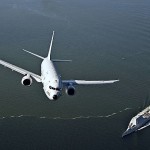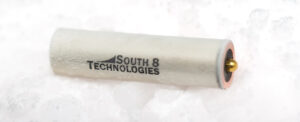Rep. Franks Says Deal Resolves Concerns Of Congress; It Is Time To Fund European Defense Secretary of State Condoleezza Rice and Polish Foreign Minister Radek Sikorski signed a deal for Poland to host missile interceptors as part of the European Missile Defense (EMD) system, adding to an earlier deal that Rice signed with the Czech Republic for a radar to be sited there. The Polish action was a defiant rebuttal to warnings and threats issued by Russian opponents of the…
Contract Updates
Hartech Group LLC (New Port Richey, Florida) – $10,153,033
Hartech Group LLC, New Port Richey, Florida, has been awarded a maximum $10,153,033 firm-fixed-price contract for three high precision jig grinders with Fanuc controllers. This was a sole-source acquisition using justification 10 U.S. Code 3204 (c)(1), as stated in Federal…
Lockheed Martin Space (Sunnyvale, California) – $142,621,543
Lockheed Martin Space, Sunnyvale, California, is being awarded a $142,621,543 noncompetitive, cost-plus-incentive-fee, cost-plus-fixed-fee, and firm-fixed-price contract modification (P00073) under a Foreign Military Sales (FMS) case to the United Arab Emirates (UAE). The total value of the contract increased to $876,747,896.…
Amentum Services (Chantilly, Virginia) – $10,645,952
Amentum Services, Chantilly, Virginia, was awarded a $10,645,952 cost-no-fee, time-and-materials modification (P00074) to contract W58RGZ-25-C-0004 to provide global aviation maintenance services. The modification brings the total cumulative face value of the contract to $158,855,989. Work will be performed in Schofield…
General Electric Co. (Lynn, Massachusetts) – $26,950,000
General Electric Co., Lynn, Massachusetts, was awarded a $26,950,000 cost-plus-incentive-fee modification (P00100) to contract W58RGZ-19-C-0003 to support the engineering and manufacturing development of the improved turbine engine. The modification brings the total cumulative face value of the contract to $862,954,255.…













